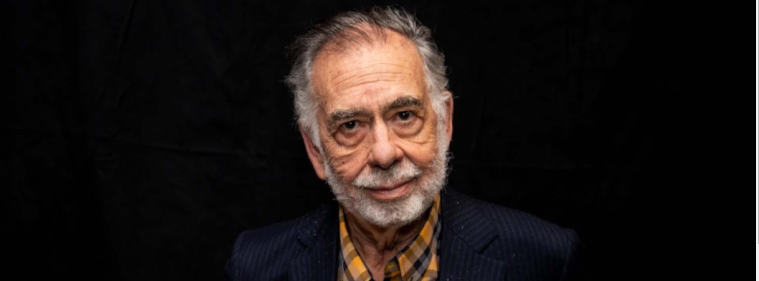The fringes of France are about to blow up in Les Misérables, the feature-length directorial debut from 39-year-old Ladj Ly. The film expands on Ly’s documentary and César-nominated 2017 short of the same name, which also starred this feature’s three leads.
“Les Misérables” is playing in competition at Cannes, which is an unusual pick, since first-time efforts tend to not be chosen to compete for the Palme D’or.
Ly uses a cop-thriller structure to tell his story; in fact, his film bears more than a few similarities to Antoine Fuqua’s movies, albeit a slightly better version of that testosterone-fueled film. If ‘Day’ lacked in socio-political messaging, Ly more than makes up for it with his take on three cops roaming the streets of an impoverished but culturally rich neighborhood in the banlieu of France’s Montfermeil neighborhood.
If the setting sounds familiar, it’s because it was the same town in which Hugo’s Les Misérables took place. If anything, Ly tries to show that the living conditions have not improved much since the time of that French Revolution-set novel.
The main action is set over a span of 36 hours in the life of Stéphane (Damien Bonnard), a rookie cop who joins a Montfermeil crime squad formed by Gwada (Djebril Zonga), of African descent, and Chris (Alexis Manenti), who is doing his, err, training day. Chris is the racially-motivated alpha of the trio, Gwada his more-than-abiding follower, but Stéphane is the morally clean guy of the group—he doesn’t like the corruption he sees from his comrades.
“Les Misérables” is a mosaic of characters, also reminding one of Paul Haggis’ “Crash.” We pay a visit to African boss ‘The Mayor’ (an intensely effective Steve Tchentchieu), who sets the neighborhood rules that the residents of Montfermeil have to abide to. He is, however, nothing more than a pawn for the cops, telling them who and what is going on around the hood and getting a free pass from his illegal activities in the process. Then there’s also Buzz (Al-Hassan Ly), a geeky 14-year-old boy with a knack for voyeurism, that just wants to stay in his room, and use his drone to peek into the girl’s bedrooms. He is friends with Issa (Issa Perica), a rebellious kid a bit younger than Buzz, whose theft of a lion cub from a visiting circus causes the troupe to lose their marbles and threaten The Mayor if they don’t get the animal back. To prevent any sort of war from breaking out, Stéphane, Gwada and Chris search for Issa, but when they do find him, he is “accidentally” shot by Gwada’s rubber bullet. Buzz’s drone captures the entire thing from above.
What ensues is a chase movie as our protagonist cops try to find Issa to snag the drone footage and destroy it, before it is uploaded online and a civil war in the neighborhood breaks out because of this blatant police brutality. With that dramatic set-up in mind, the good news is that Ly’s film is quite simply a technical marvel, brimming with energy and the kind of nerve-wrecking finale that has the power to hold an entire audience in thrall. The director has a real knack for tightly-knit and tense showdowns between the local factions of the neighborhood; a notable sequence involving a caged adult lion and a youngin purposely brought into the cage as a form of torture is brutally tense.
An odd decision comes in the form of multiple fake out endings, which seems like a major mishap at first, only for Ly to continue his story on with an impressive finale. This pièce-de-resistance is the violent resistant showdown between pyro-carrying vengeful neighborhood kids, who can’t be older than 14, and our three lurid cops. The sequence includes gunfights, fireworks, and ambushes, all set in a maze-like, abandoned apartment building in Montfermeil.
The decision to use local non-professional actors in these and other scenes pasy dividends. For the youth of Monfermeil to rise up, Ly understands that authenticity is key to grab our attention. The young, unknown actors he uses are, quite frankly, impressive. They are captured by Julien Poupard’s impressive handheld camerawork, which never feels confusing or messy, but realistic and almost doc-like.
If Ly should be faulted for anything, it’s his insistence to have Stéphane as the lead of the film. A white-person’s perspective renders us always on the outside looking in when it comes to knowing the locals of the neighborhood. Manenti does a good job with Stephane, but his character is so conventionally thought-out, playing the good cop, with morals intact, that an on-paper description of him could easily be mistaken for about a dozen similar characters we’ve seen in other Hollywood movies. No surprise then, that the most excitingly pertinent scenes in the film involve the various different cultures of Montfermeil, their struggles, and the corruption that eludes its crime scene.
Ly’s influences very much seem to stem from Fuqua’s testoserone-fueled cinema. Is that a bad thing? Not necessarily; however, the machoism and conventions on display can be damn-near fatal to the overall impact and messaging the film has. If anything, “Les Miserables” presents us with a new voice in French cinema, one that hasn’t fully learned to restrain himself, but with this feature-length debut, shows the kind of promise not many first-timers exhibit in their rookie turn. [B]





